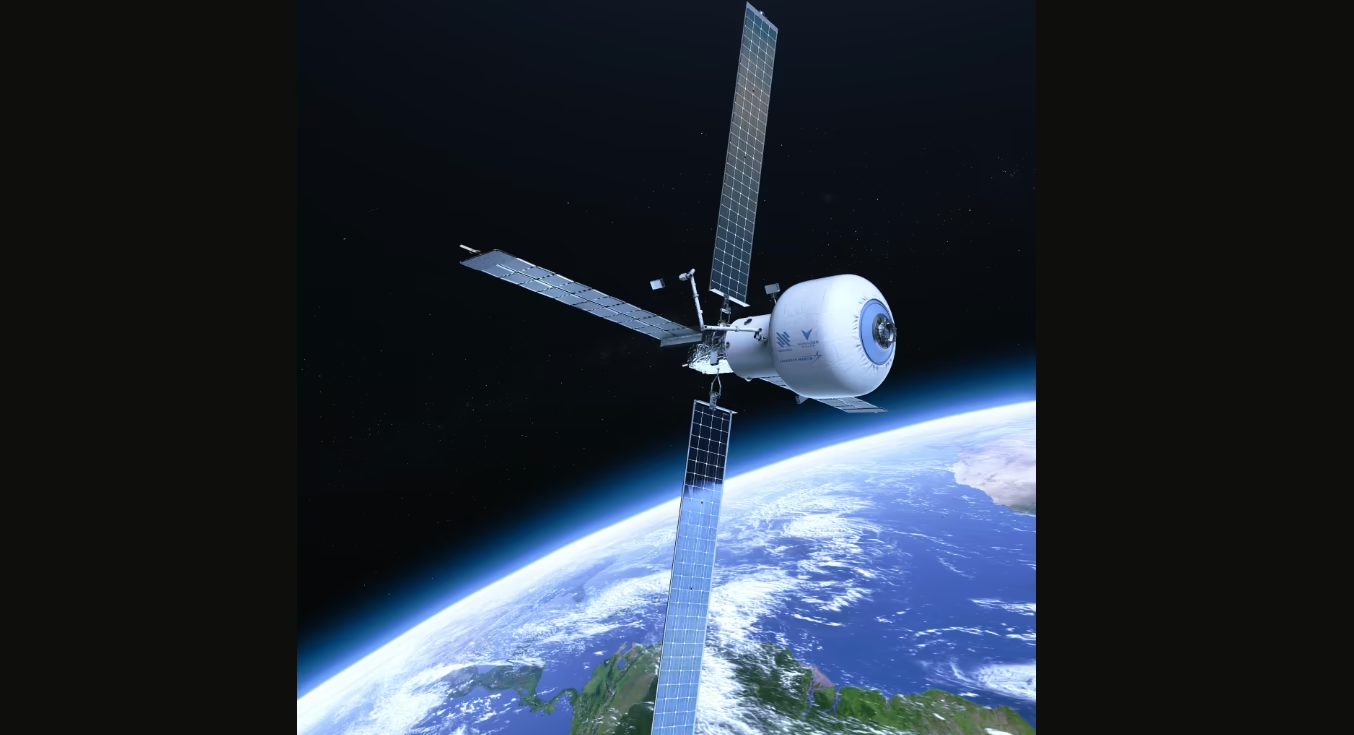
Europe’s Airbus Defense and Space is joining a U.S. partnership led by Voyager Space-owned Nanoracks to develop and operate a commercial space station in low Earth orbit (LEO), one of four NASA-backed projects vying to host government research and commercial ventures after the International Space Station (ISS) is retired.
The addition of Airbus gives a strong international presence to Voyager’s Starlab team, which was awarded a $160 million Space Act Agreement (SAA) in December 2021 to help with the development of a permanently staffed, four-person inflatable habitat that includes a metallic docking node, power and propulsion element and large robotic arm for servicing.
Starlab, which is targeted for launch in 2028, is designed to host the George Washington Carver Science Park, which includes four science labs and an open workbench for researchers and commercial customers. Lockheed Martin is a partner in the program.
Airbus will provide technical design support and expertise for the Starlab space station, which is expected to replicate the ISS’s payload capacity.
“We are proud to partner with Airbus Defense and Space to bring Starlab to life,” Voyager Chairman and CEO Dylan Taylor said in a statement. “Working with Airbus we will expand Starlab’s ecosystem to serve the European Space Agency [ESA] and its member state space agencies to continue their microgravity research in LEO.”
Jean-Marc Nasr, Airbus executive vice president of space systems, said the partnership with Voyager Space is “the first step toward fielding the next-generation of space stations to serve international astronauts. We are excited to support a project aimed at changing history.”
In December 2021, NASA also awarded a $130 million SAA for the proposed Orbital Reef commercial outpost—a project headed by Blue Origin and Sierra Space that also includes Boeing, Redwire, Genesis Engineering and Arizona State University—and a $126 million SAA to Northrop Grumman, which is building on its experience flying Cygnus cargo ships to the ISS and other programs for its commercial LEO offering. Northrop’s team includes Dynetics, with other partners to be announced.
The awards kicked off a two-phase Commercial LEO Destinations program that would culminate with certification of one or more habitat designs for NASA astronauts, along with purchase orders for services.
During the first phase, which is expected to continue through 2025, the teams—in coordination with NASA—will formulate and design their commercial LEO destinations for potential government and private sector needs.
Separately, NASA in February 2020 awarded Houston-based Axiom Space a firm, fixed-price, indefinite-delivery, indefinite-quantity contract worth up to $140 million to provide at least one habitable commercial module to be attached to the ISS. Axiom plans to parlay its privately owned, multi-module, ISS-linked outpost into a free-flyer station before the ISS program ends. The ISS is currently expected to operate through 2030.
